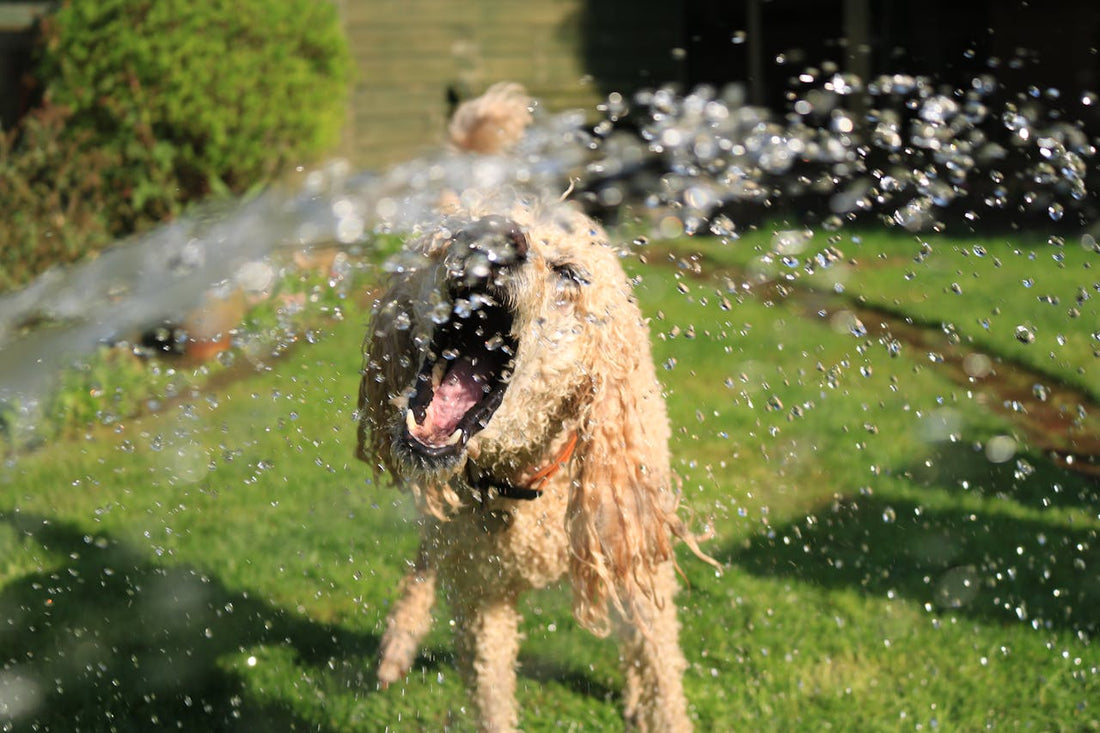As a loving pet parent, you'd do anything to ensure your furry companion thrives. Providing clean, fresh water is an essential part of that equation. But have you considered the potential benefits of alkaline water for your dog? Let's explore everything you need to know, from the science behind it to practical tips for keeping your pup hydrated.
Understanding Alkaline Water and Potential Benefits for Dogs
Alkaline water boasts a higher pH level compared to regular tap water. This increased alkalinity is often attributed to minerals like calcium, magnesium, and potassium. Though research is ongoing, some pet owners and veterinarians believe alkaline water could offer advantages for dogs:
- Enhanced Hydration: Research suggests that alkaline water might be easier for dogs to absorb, leading to better hydration – crucial for maintaining overall health, especially during playtime or hot weather. Studies have shown that dehydration can lead to lethargy, digestive issues, and even organ damage in dogs. Ensuring your dog stays hydrated is vital for their well-being.
Here's the science behind it: When a dog is dehydrated, their body struggles to perform essential functions like regulating temperature and flushing out toxins. Alkaline water, with its smaller molecule size (according to some studies), may be absorbed more efficiently by the body, potentially leading to improved hydration compared to regular tap water.
- Balanced pH Support: A balanced pH level is vital for various bodily functions in dogs, including digestion and nutrient absorption. While canines have a natural pH balance, it's believe alkaline water could potentially help counteract potential acidity in their system caused by factors like diet or certain health conditions.
Digestive health is a significant concern for many dog owners. A balanced pH level in the digestive tract can aid in proper nutrient absorption and help prevent digestive discomfort. While more research is needed, some believe that alkaline water, with its higher pH, may contribute to a healthier digestive environment for your dog.
- Antioxidant Potential: The minerals in alkaline water may act as antioxidants. These antioxidants could help neutralize harmful free radicals, potentially supporting your dog's overall well-being and immune system function. Free radicals are unstable molecules that can damage cells and contribute to various health issues.
Just like in humans, free radicals can wreak havoc on your dog's cells. The antioxidant properties of the minerals in alkaline water may help combat these free radicals, potentially boosting your dog's immune system and overall health.
Important Considerations Before Making the Switch
Remember, when it comes to your dog's health, caution is key. Here's what to consider before switching to alkaline water:
-
Consult Your Vet: Always consult your veterinarian before introducing any new dietary or water changes to your dog's routine. Your vet can assess your dog's individual needs and health conditions to determine if alkaline water is suitable. Underlying health issues or medications your dog may be on could impact their response to alkaline water.
-
Quality Matters: Not all alkaline water is created equal. Ensure you're purchasing a high-quality product from a reputable source. Consider brands with transparent filtration processes and clear labeling.
-
Cost Factor: Be aware that alkaline water can be more expensive than regular tap water, especially for larger breeds with higher water consumption. Consider your budget and whether the potential benefits outweigh the cost for your situation.
Tips for Providing Clean, Fresh Water to Your Canine Companion
No matter if you choose alkaline or regular tap water, here are some essential tips for keeping your dog properly hydrated:
-
Cleanliness is Key: Wash your dog's water bowl daily with warm, soapy water to prevent bacteria growth. A clean water bowl encourages your dog to drink more and reduces the risk of ingesting harmful bacteria.
-
Freshness Matters: Refresh your dog's water throughout the day, especially during hot weather or after exercise. Stagnant water can become stale and unappealing to your dog.
-
Consider a Water Fountain: A water fountain can encourage your dog to drink more water and help keep the water pleasantly cool and fresh, similar to a flowing stream. Moving water can be more enticing to some dogs, and fountains can also help with oxygenation of the water.
Conclusion: Prioritizing Your Dog's Health and Hydration
While more research is needed to definitively confirm the benefits of alkaline water for dogs, it's a discussion worth having with your veterinarian. Ultimately, providing your beloved dog with clean, fresh water – whether alkaline water or regular tap – is the most important thing. By following the tips above and consulting with your vet, you can ensure your furry friend stays hydrated and healthy for years to come with healthy alkaline water!

